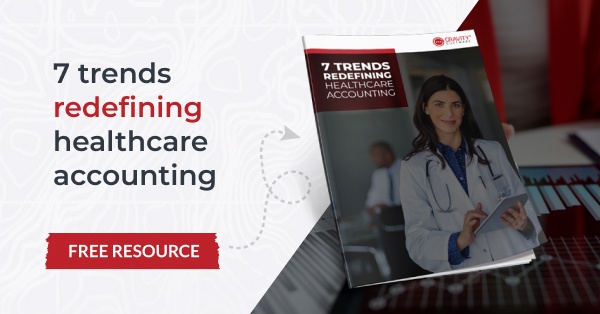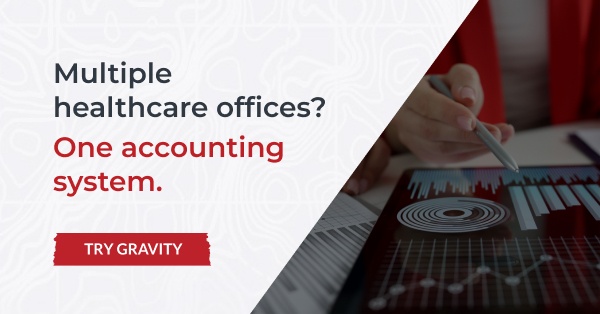Scaling smart: The best software for multi-location healthcare practices

Healthcare providers in private practice face unique challenges in an increasingly competitive landscape. According to the American Medical Association, they face overwhelming administrative burdens, lack leverage in negotiating with insurers and may be financially squeezed by the need for essential resources like electronic health record systems.
In the face of these financial burdens, some independent providers in the healthcare space choose to be acquired by a larger health system. If handled properly, healthcare M&A deals have the potential to create better patient experiences while helping providers stay focused on care.
Oversight in these acquisitions is typically the role of the buying company's CFO, who is tasked with sustaining the organization's operational and financial balance throughout the M&A process. The right tech stack can play a significant role determining overall success.
The importance of scalable software for multi-location healthcare practices
Key among the technologies needed to ensure balance amid growth is a scalable healthcare accounting solution that supports multiple entities.
Traditional accounting tools are often designed with single-entity operations in mind. Adding financial data for additional locations is possible but often requires separate logins for each.
This creates data silos and inefficiencies, as users must log into and out of each entity's database for each piece of information entered. Month- or year-end reporting requires copying and pasting large volumes of data into a separate spreadsheet or program, meaning organization-wide financial visibility is limited to times when staff are available to manually compile this data.
Dedicated multi-entity accounting software houses all of an organization's financials in a single database while still allowing for segmentation by location. For healthcare professionals, the benefits of this are multi-fold.
Efficiency
With healthcare financial management software designed specifically for multi-entity organizations, there are many opportunities to curtail the duplication of work by centralizing key tasks such as payroll, invoicing, billing processes, purchasing and inventory management.
Visibility
When all of an organization's financial data is housed in a central location, stakeholders gain real-time insight into key markers of financial health such as revenue, expenses and more. This makes it easier to implement proactive strategies for locations that are lagging behind, rather than waiting until the end of the month to make updates, improving overall practice performance.
Scalability
Given the centralized data management capabilities and automation opportunities afforded by multi-entity solutions, handling the finances for dozens of healthcare practices is not significantly more burdensome than doing so for only a few. Your organization can grow without the need to hire additional finance staff.
Gravity Software: An ideal accounting solution for the healthcare industry
Gravity Software is designed to fulfill the unique needs of multi-entity healthcare organizations. Because it employs a single database to house financial information for all facilities or offices within a healthcare organization, Gravity is capable of:
- Real-time visibility across entities
- Automating intercompany billing and payroll
- Automated consolidated reporting
- Simplified regulatory compliance with healthcare-specific financial guidelines
Overcoming the challenges of managing multiple locations
Managing multiple locations can be a daunting task for healthcare practices. With different locations come different challenges and it’s essential to address these challenges to ensure seamless operations and excellent patient care.
Fragmented data management across clinics
One of the significant challenges of managing multiple locations is fragmented data management. Each location may have its own system for managing patient data, appointments and billing, leading to disparities and issues accessing full patient data. This can result in care inefficiencies, errors and lower patient safety. To overcome this challenge, healthcare practices need to implement a unified data management system that allows for seamless data sharing across locations.
Scheduling complexities in multi-clinic operations
Scheduling is another area where multi-location healthcare practices face challenges. With different providers and availability at each location, balancing schedules can be a logistical nightmare. Patients may experience frustration and cancel appointments due to scheduling issues. To address this challenge, healthcare practices need to implement a centralized scheduling system that allows for easy management of appointments across multiple locations.
Staying in compliance with state and federal laws
Multi-location healthcare practices must also comply with state and federal laws, which can be a significant challenge. Each location may be bound by different regulations, such as HIPAA, billing and licensing requirements. Healthcare providers must stay up-to-date with these regulations and ensure compliance across all locations. To overcome this challenge, healthcare practices need to implement a compliance management system that ensures adherence to all relevant laws and regulations.
Automating intercompany billing, payroll and revenue cycle management
In the absence of the right technology, the added negotiating power that comes with being linked to a well-known healthcare industry player can come with added labor for the organization's finance department, which now must ensure each location within the organization is billed for their share of any supplies or services purchased.
With traditional, single-entity accounting software, this means creating an intercompany invoice for each location involved in the purchase, logging into each database to create a "due to" journal entry and logging into the purchasing entity's database to create "due from" entries for each location that received the supplies or services.
If your organization purchases supplies on behalf of dozens of healthcare facilities, each purchase carries dozens of opportunities for a "due to" or "due from" journal entry to be missed or mistyped. Automated intercompany billing that comes with multi-entity healthcare financial software, on the other hand, reduces or even eliminates the possibility of error while ensuring timely reimbursements between entities.
Outsourcing billing processes to a specialized revenue cycle management (RCM) team can enhance business growth and improve patient care.
Payroll can be similarly streamlined, with the parent company or one office handling paychecks for multiple locations. In addition to fostering increased efficiency by avoiding the duplication of work, automating payroll allows for centralized employee data management and consistency in pay structure across locations.
Consolidating financial reports for performance insights
The financial success of a growing company hinges on sound decision-making. And that hinges on having the right information at hand at the right time.
Consolidated reporting, a key capability of multi-entity accounting software, allows for the type of comprehensive, up-to-the-moment data analysis necessary to accelerate decision-making. Rather than being restricted to month- or even year-end reports that are painstakingly put together by an overtaxed team, finance teams using multi-location financial software can access reports at any time and break down data as needed -- either by location, by specific KPI or even by delving into individual transactions.
Strategies to align financial reporting with operational goals
Although reporting with multi-entity software is drastically more efficient than manual compilation, creating standardized templates will streamline the process even further. If your team knows, for example, that stakeholders are consistently interested in supply costs, they can create templates that always include this metric.
Individualized dashboards created with leading business intelligence tools such as Gravity Software integration Microsoft Power BI drive insights home in a way that traditional spreadsheet-based reports cannot, creating the best possible conditions for effective financial planning and growth-minded decision-making.
Gravity Software streamlines reporting for multi-entity dental care practice
For dental care company The Smile Center, the benefits of consolidated reporting capabilities are far from hypothetical. The Kentucky-based enterprise's accounting coordinator, Michelle Keckler, saw an increase in her team's productivity within a few months of implementing Gravity Software and beginning to automate consolidated monthly reports.
Keckler has been especially impressed with the reduction of manual data entry, the real-time insights that customized dashboards offer into each location and her team's ability to easily access key information anytime and anywhere via their mobile devices.
In addition to its comprehensive reporting tools, customizable business intelligence capabilities and support for seamless intercompany processes, Gravity Software has:
- Robust, HIPAA-compliant security measures backed by Microsoft that include multi-factor authentication and complete audit trails into every transaction
- Customizable automated workflows powered by Microsoft Power Automate to increase efficiency and free employees for high-value tasks
- The ability to sync accounts payable with your EMR/EHR to give project managers access to financial information on-site
- ACH processing available within Gravity, increasing both efficiency and security by negating the need for payments to go through third-party vendors
Other standout features include fast implementation and a true cloud accounting solution. While on-premises accounting solutions involve costly, bulky infrastructure that often requires an IT professional for upgrades and maintenance, your team can access Gravity Software from anywhere with an internet connection. Updates occur automatically with little to no system downtime and the system scales as quickly as your business can grow. In addition to these, The Smile Center's Keckler appreciates Gravity Software’s support.
"I have not run into one single issue where the response from Gravity was, Sorry about your luck – that’s just the way it is,” she said, adding that the solution's responsive customer support team takes immediate steps to develop a feature she desires if it does not already exist.
Best practices for multi-entity financial management
A CFO's directive is to ensure the finances of the healthcare organization as a whole remain unified even as new locations are added to the fold. While a scalable healthcare financial software solution is non-negotiable in this, successful growth also involves planning and communication.
Setting clear financial protocols for new locations is imperative, as is regular training for finance departments on tools and processes. Knowing what is expected of them and how to leverage the tools at their disposal is important for achieving buy-in from the newly acquired location.
Related to this is regularly tracking key performance indicators and clearly communicating which KPIs are most relevant to the organization.
Set the foundation for growth with Gravity Software
Maintaining operational efficiency, facilitating organization-wide collaboration and ensuring all relevant stakeholders have access to accurate, complete financial information are key components in the successful growth of a healthcare organization.
Gravity Software creates the conditions for these components to thrive. With its consolidated reporting capabilities and myriad automation opportunities, scalability is built in. Compliance with healthcare financial regulations as well as general best financial practices is all but a given. Your organization can achieve growth without individual locations sacrificing financial control or patient satisfaction.
For a deeper look at Gravity's healthcare accounting software, schedule a demo today.
Gravity Software
Better. Smarter. Accounting.




